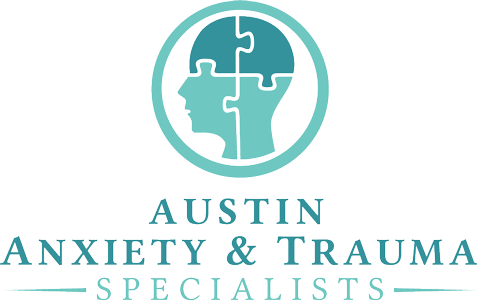We all know exercise is essential for physical health, and it’s becoming common knowledge that working out can also boost mental wellbeing. Unfortunately, not all of us are able to experience those benefits. The CDC reports that only one quarter of American adults exercise the minimum amount necessary to live a healthy life. In addition to physical disorders that may impair one’s ability to exercise, some mental conditions like depression, anxiety, and low self-esteem can make hitting the gym feel like the last thing you’d want to do.
It can be difficult to start building physical activity into your life—especially for people with mental conditions. We’ll first break down for you why the challenge may be greater for you, the science behind exercise’s benefits on your mind, and how you can get started and stay motivated.
Why exercising can be hard
Finding the motivation to get up and move doesn’t come naturally for everyone. If you have depression, anxiety, or other mental conditions, it’s likely there are underlying causes for a lack of motivation to move, such as:
-
- Low dopamine. People with depression and ADHD/ADD tend to have lower levels of dopamine, the neurotransmitter that sparks excitement and interest.
- Motivation. Low dopamine may not only affect your desire to exercise, but to build a new, healthy routine. Looking at the end goal may make a person with dopamine deficiency feel like the task at hand is insurmountable.
- Lethargy. Mental illnesses can take a toll on your energy, causing fatigue. And in some extreme cases, leaden paralysis, a symptom of depression in which your limbs feel too heavy to move.
- Social anxiety. A lot of exercise requires going outdoors or to a gym, where folks with anxiety or low self-esteem might be hypervigilant about how others perceive them, their bodies, or their physical abilities.
- Negative self-talk. When people are depressed or have low self-esteem, sometimes it feels like there’s a little jerk in your head telling you you’re a failure, you’ll never get better, or questioning what the point is of trying to exercise.
Read: 7 Cognitive Distortions to Uproot from your Belief System
How does exercise help mental health?
Numerous studies over the years have found that exercise is an effective treatment for depression, and in some cases, can be as effective as antidepressants. Other research has also proven exercise can help treat symptoms of or even prevent anxiety disorders and Post-Traumatic Stress Disorder (PTSD). There are a few reasons researchers believe exercise can be such a powerful buff for mental disorders:
Exercising makes you feel good. Physical activity releases endorphins, the body’s happy hormone, promoting feelings of well-being and boosting your spirits.
Regular exercise can improve your sleep. Adequate sleep is a vital part of self-care and can also improve your mood, but many mental disorders can disrupt your sleep or keep you lying awake at night. Exercising regularly can help regulate your circadian rhythm (your body’s natural clock that tells you when to sleep and wake up) and promote more restful sleep.
Exercise reduces stress levels. When we’re stressed, the sympathetic nervous system kicks in its “fight or flight” response to prepare us for dangers. Without release, that adrenaline can continue to stress us out. Exercising helps the body to “blow off steam,” release stressful thoughts, and relax.
Do I need to exercise a lot to be mentally healthy?
For those who enjoy going hard at the gym every day, good for you! For the rest of us, there’s hope: you don’t have to exercise daily to realize its benefits. Researchers at Yale and Oxford found that the optimal amount of exercise for mental health is 30-60 minutes, three to five times a week. To maximize those benefits, harness the power of nature and head outdoors to workout.
How to get started and stay motivated
Just knowing that something’s good for you doesn’t make it any easier to do it. We get that. A lot stands in the way: motivation, interest, energy, fears, hopelessness, stress … (we could keep going). But if you have even the desire to make a change (not even to exercise), there is hope. Here’s what you can do:
Start small
Breaking an insurmountable task into much smaller, manageable tasks makes the biggest difference. Allow yourself to do as little as you want. Do you eventually want to jog 30 minutes every weekday morning? Start with walking around your house or even standing outside for five minutes. The goal is to get yourself moving and allow yourself to ease into longer durations and greater intensity. At your own pace.
Pique your interest
Lifting weights isn’t everyone’s cup of tea. Choose a form of physical activity you really, really like. If everything seems unappealing, consider what your role model or favorite fictional character would do.
Here are a few alternative forms of exercise if you hate the gym:
- Rollerblading or disco spinning
- Skateboard, bike, or scooter to work
- Bouldering or indoor climbing
- Hiking or scenic walks
- Pole dancing or aerial hoops
- Dancing to music at home (or take a class)
- Kayaking, paddleboarding, or swimming
- Walking your dog (or volunteer at your local animal shelter)
- Stretch at home with a YouTube tutorial
Practice self-kindness
Healing is a journey—and making big changes takes time. Imagine your friend is learning piano and they keep making mistakes and aren’t progressing fast enough. Would you tell them to give up, that they are terrible at piano, and always fail at anything they try to start?
Of course not. You’d likely offer your struggling friend encouragement, patience, and kindness. As you’re picking up a new healthy habit, allow yourself just as much grace as you would offer your friend.
Read: “I’m not good at anything”: How to Change the Way You Think About Yourself
Know when to seek help
Exercise can certainly help treat some mental illnesses, but sometimes it’s just not enough. Sometimes you can’t even force yourself to get out of bed, let alone lift weights at the gym. Depression can color life gray, steal what once brought joy, and make life feel not worth even the effort. But it doesn’t have to feel that way.
If these thoughts are prevalent and disrupt your life, you’re not alone. It may be time to seek professional help. A therapist can prescribe the right treatment for you and accompany you on your healing journey.
Our therapists at Austin Anxiety and Trauma Specialists offer online counseling to all residents of Texas. Schedule an appointment with us and we’ll match you with a therapist trained to best meet your needs. It can get better. We can help.






